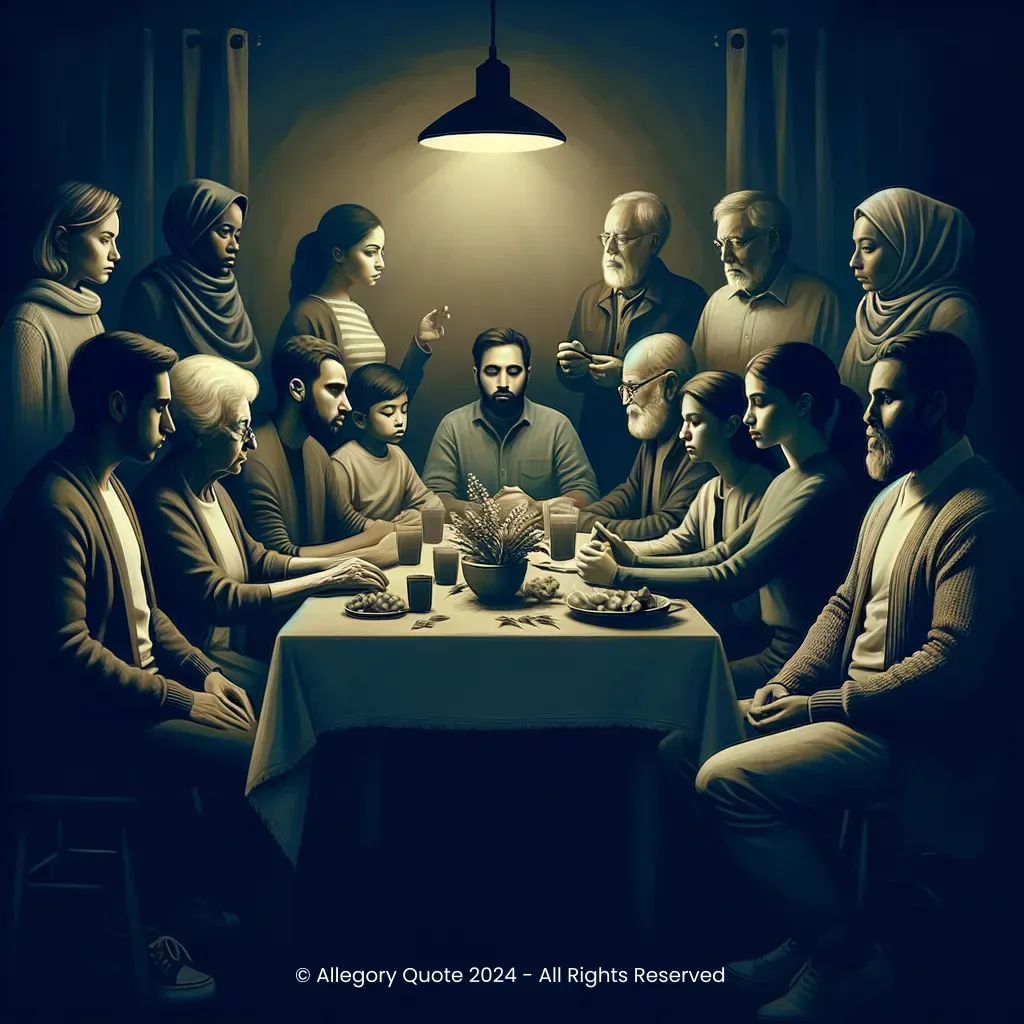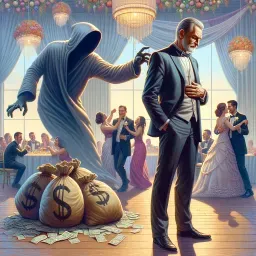”Never tell anybody outside the
family what you’re thinking again“

- Meaning
- This phrase highlights the importance of loyalty and discretion within familial relationships. Philosophically, it speaks to the value placed on trust and the often-unseen dynamics of family ties, suggesting that one's innermost thoughts and feelings should be guarded. Psychologically, it reflects the complexities of communication and the potential ramifications of revealing personal insights, especially where loyalty is involved. Historically, this reflects the cultural significance of family honor, particularly in narratives revolving around powerful families, such as the Mafia.
- Allegory
- This image symbolizes the essence of the phrase by portraying a family gathering where secrecy and discretion prevail. The dim lighting reflects the hidden nature of thoughts, while the intimate setting emphasizes the bonds of loyalty among family members. The faint light in the background conveys the idea that while their feelings are shared among themselves, they remain unspoken to the outside world.
- Applicability
- In personal life, this phrase serves as a reminder to be cautious about what you share with others. It promotes the idea of trusting family members while being wary of outside influences. In daily situations, it can encourage individuals to think critically about the implications of their words and the importance of confidentiality among loved ones.
- Impact
- This phrase has impacted culture by emphasizing themes of loyalty and secrecy within family systems. It has inspired discussions on family dynamics, communication boundaries, and the consequences of betrayal, often quoted in contexts where loyalty is paramount.
- Historical Context
- The phrase originates from a 1972 film, set in a post-World War II America, a time when family dynamics often intersected with broader cultural themes of loyalty, power, and secrecy. The Godfather presents a context where family loyalty transcends conventional societal norms, corresponding with the era’s fascination with organized crime and the American Dream.
- Criticisms
- Criticism of this phrase may arise from its implications of isolation within familial relationships, suggesting that private thoughts can be stifled or that they create a divide between family and external friendships. Opponents might argue that open communication can foster better understanding and stronger relationships, even with those outside the family.
- Variations
- There can be variations of this phrase across cultures; for instance, in some Asian cultures, family secrets are deeply respected, while other cultures may promote openness about thoughts and feelings. This divergence highlights different interpretations of trust and loyalty across cultures.
-

Don’t ever take sides with anyone against the family.
-

Luca Brasi sleeps with the fishes.
-

I have a sentimental weakness for my children, and I spoil them, as you can see.
-

I want you to use all your powers and all your skills. I don't want his mother to see him this way.
-

You talk about vengeance. Is vengeance going to bring your son back to you?
-

It's not personal, Sonny. It's strictly business.
-

Some day, and that day may never come, I will call upon you to do a service for me.
-

A man who doesn't spend time with his family can never be a real man.
-

You come into my house on the day my daughter is to be married and you ask me to do murder, for money.
-

Leave the gun. Take the cannoli.
-

What’s the matter with you? Is this how you turned out? A Hollywood finocchio that cries like a woman?
-

I'm gonna make him an offer he can't refuse.
No Comments